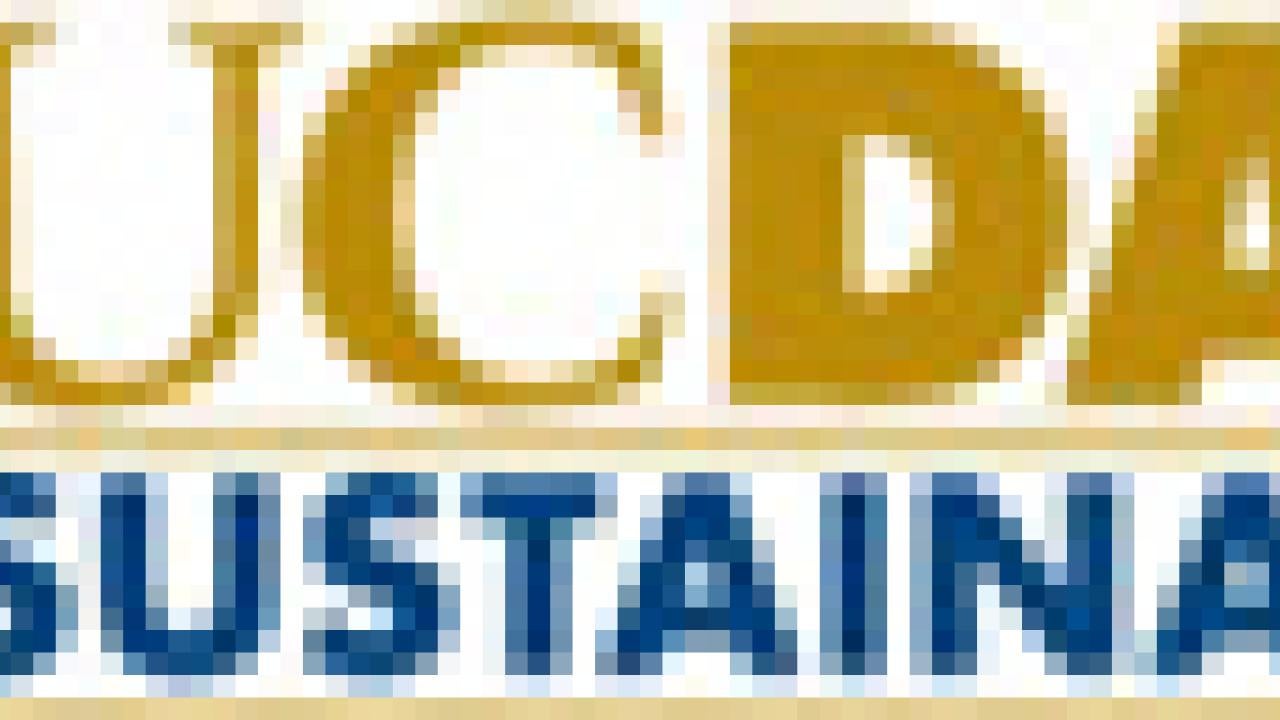UC Davis is launching its first-ever campuswide commitment to sustainability with six new initiatives aimed at bringing sharp focus to practices that can meet present needs and, at the same time, enhance the environment and the ability of future generations to thrive.
Vice Chancellor Stan Nosek has committed spending up to $54,000 on those initiatives, all recommendations of a report presented to him on Jan. 17 by the campus's 1-year-old Sustainability Advisory Committee.
The report, "Blueprint for a Green Future," assessed how far UC Davis has come in a wide range of areas from water conservation and energy efficiency to innovative materiel purchasing practices, and campus, transportation and building planning. It also included 15 "priority" recommendations for future actions to support ecological, human, social and economic vitality on campus and within the larger community.
The report comes at a time when UC Davis is facing a $12 million deficit for purchased utility costs.
Nosek, vice chancellor for administration, acknowledged the "strained budget times," saying, "We have to make sure that the money we put into [sustainability programs] is strategic." At the same time, though, he emphasized that UC Davis "is a campus at the forefront of the sustainability of environmental issues. It is a core responsibility."
The six new initiatives include:
- The creation of a campus "green map" that highlights sustainability-oriented locations on campus, including energy-efficient buildings, advanced irrigation practices, sustainable materiel management efforts, and waste prevention and recycling programs.
- The production of a short video documentary that highlights key ways that UC Davis "walks the walk" in its commitment to sustainability through people, projects and buildings.
- The development of a campus sustainability Web site that promotes UC's and UC Davis' commitment to sustainable practices, goals and values, and provides links to other sustainability sites.
- Launch a research grant competition for promising student-researchers interested in sustainability.
- Develop a plan for financing a comprehensive building "renewal" program, including hiring an intern, to devise ways to retrofit, improve and redesign existing buildings to make them more energy-efficient, user-friendly and seismically safe.
- Increase sustainable practices in the campus's food services, in cooperation with Sodexho, the Coffeehouse and outside catering services. This initiative calls for the hiring of a graduate student researcher to survey students about their attitudes toward and the demand for organic and local food on campus, and to research what other colleges are doing.
The university is already taking steps toward a sustainable future, including installing new utility meters, hiring a building maintenance energy engineer, and the planned revising of faculty, staff and student orientation manuals to address sustainability.
Nosek said it was important that the sustainability message and mission be broadcast far and wide across the campus. "It needs to be a community effort if it is truly to be sustainable."
John Meyer, vice chancellor for resource management, said an added benefit of publicizing the campus's commitment to sustainability is that UC Davis will be able to lure prospective "students, faculty and staff that are the best fit for this place…It's to our competitive advantage to do this. We need to set the target pretty high. We need everyone to be thinking about it."
The consensus of the 21-member committee, under the direction of Chair Jill Blackwelder, associate vice chancellor for safety services, is that sustainability will thrive here only if it truly gets woven into the classrooms, lecture halls and academic fabric of the campus.
"For our campus to adopt and embrace this report's top recommendations would be an important first step toward elevating sustainability to the level of our campus's respected Principles of Community," the committee writes in its report, "in effect treating the environment in which we live and work with the same degree of respect that we regard our community members."
To view the report, go to www.news.ucdavis.edu/bulletins/downloads/sustainability.pdf
Media Resources
Mitchel Benson, (530) 752-9844, mdbenson@ucdavis.edu
